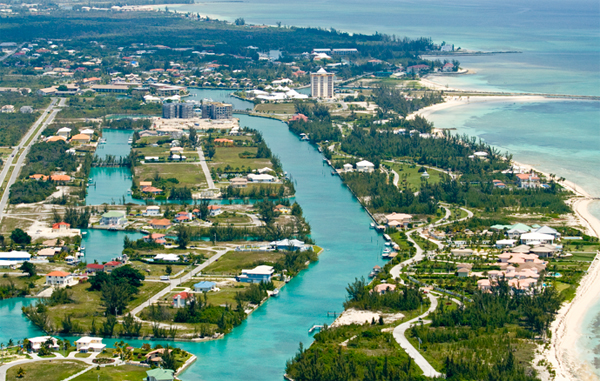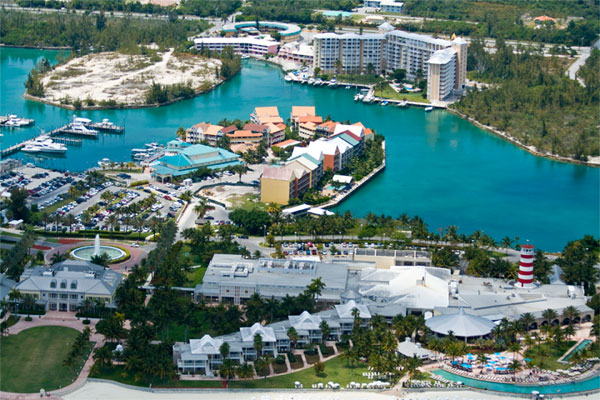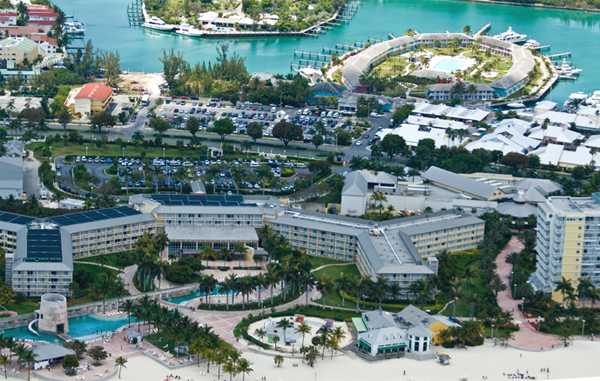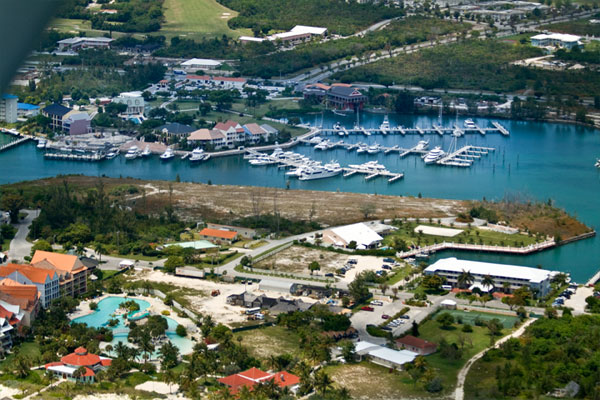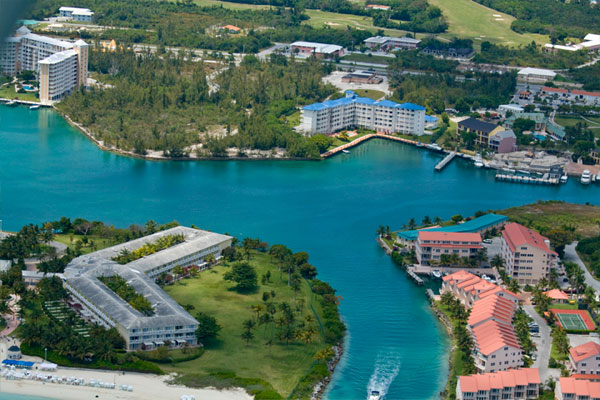|
From:TheBahamasWeekly.com Grand Bahama Present State of the Economy Tourism: I am alarmed at the present state of the economy of Freeport due mainly to its Tourism base (hotel room visitors) being reduced to less than 25 per cent of what it would have been prior to 2004, when two major hurricanes forced the closure of what had been the Royal Oasis and El Casino, leaving the Grand Lucayan (formerly Our Lucaya) as the only beachfront four-star hotel with its mini-casino already struggling these past five years and continuing to do so. Most people would say our stop-over, quality tourism business was near zero and falling. While it was apparent before the 2004 hurricanes that the Casino Model, on which the Freeport tourist economy was built, was being challenged and would by now have been severely challenged by the popular granting of Casino Licenses in Florida and in almost every major metropolitan area of the United States, I would submit that no serious initiatives have been made, either by Government or The Grand Bahama Port Authority, Limited (the GBPA) these past 10 years to diversify the tourism product on Grand Bahama, which had always been a poor cousin of its Nassau competitor. I am sure there are many, many reasons why Tourism has failed in Grand Bahama, and failed it has despite significant increases in cruise ship visitations. The question is: What is going to be done about it? Continuing Downturn I believe the dismal condition of the Tourism market in Grand Bahama is widely acknowledged – even The Grand Lucayan doors would not be open without monthly injections of cash from its owners, Hutchison Whampoa (Hutchison), nor would its Casino be in operation without being subsidized by Government. In addition, the Government has in the past 18 months subsidized jet flights to five United States cities and continues to do so. All of these efforts, while laudable, are merely bandaids.
Admittedly, if a Tourism turnaround can be done, it would probably take three to five years to accomplish and would require new hotel product, massive training and further subsidization of operators, airlift and the like. While the Industrial sector on the island continues to do its part, the lack of tourism revenue means that there is no money in the pockets of the thousands of Bahamians who need to be employed: no tips: no money on the street. Whatever else, the “yankee dollar” is still critical to a happy Bahamas. The result of all of this is that there are very few businesses in Freeport that are presently, or have in the past four years made money: at least five of our high-end restaurants have closed and dozens more shops and restaurants are close to closure. Further, the lack of quality stopover tourism means there is no chance for the Investor Real Estate Market to rebound as seems to be happening in Nassau, Abaco, Exuma and Eleuthera. This Freeport market remains moribund.
There is a recurring rumour that if the occupancy numbers do not improve for the Grand Lucayan by Christmas, the decision will be taken by Hutchison to close the Hotel. Given the unhappy history of its operation by Hutchison, this may have an ultimately good result if the hotel is marketed by open bid for sale and is sold to a vibrant hotel group (a la Emerald Bay, Sandals) then the process of tourism rejuvenation can begin. If, however, Hutchison intends to shutter the hotel (I understand there is no third party debt) this would have a continuing calamitous affect on Freeport tourism and jobs. There has been a press release that the subsidized flights have now been cancelled. Industrial Sector The Industrial Sector at the Lucayan Harbour is apparently doing well, though I am certain these players, particularly Polymers and PharmaChem, are suffering under the crippling power costs affecting Grand Bahama. Polymers has advised that its Freeport plant suffers four times the power costs of a similar U.S. counterpart, so that with Bahamian labour costs being almost equal to U.S. costs, it is unlikely that we will be able to attract any new players to the Port area or The Bahamas if such are labour intensive and/or heavy electrical users.
We have not had a new player in this sector since 2003. Is there another Borco, Shipyard or Pharmaceutical/Polymers Company out there? I am sure there are probably dozens of smaller plant operators in Europe or South America that export product to the U.S. and Canada that could be attracted to the Port Area but they would have to be educated about Freeport’s existence and its benefits of establishing here. Again, where is the sustained, concerted effort to market/attract such players? Despite the covenants by the GBPA in the Hawksbill Creek Agreement, 1955 and 1960 to use their best endeavours to promote and encourage factories and industries, there has never been a professional, established and sustained effort in this regard. As envisaged by and covenanted for in each of the Hawksbill Creek Agreements (see below), a new sustained multi-year effort needs to be made, hopefully by a joint effort of the public/private sectors (GBPA, Hutchison, Licensees, Government) to market/expose Grand Bahama to the light industries of the outside world that can benefit from a Bahamas tax free base (but obviously not heavily dependent on electrical usage). Covenants by the GBPA and GBDevco to Promote Hawksbill Creek, Grand Bahama (Deep Water Harbour and Industrial Area) Act , 1955 By the Hawksbill Creek Agreement 1955 and in consideration of the Government’s granting to it of 50,000 acres, the creation of the Port Area and the exclusive administration, licensing and Duty Free exemptions and the myriad benefits granted to the GBPA over the Port Area for a period of 99 years, the GBPA covenanted inter alia: “1.(3) Use their best endeavours to promote and encourage the establishment of factories and other industrial undertakings, and in particular factories, industrial undertakings, and industries which will make use of the natural resources and products available at Hawksbill Creek such as limestone rock and pine, timber......” Hawksbill Creek, Grand Bahama (Deep Water Harbour and Industrial Area) (Amendment to Agreement) Act, 1960 By the 1960 Hawksbill Creek Agreement Act, the intent to change the emphasis of Freeport from an Industrial Centre to a Touristic and Real Estate Investment area, was specifically provided for in the provision and covenant to build the Lucayan Beach Hotel.
In my opinion “benefit to the colony” was always envisaged that Freeport would be of major benefit to the country as a whole. Freeport, Grand Bahama Act, 1993 By this Act, in consideration of certain covenants made by the GBPA and GBDevco therein, an Agreement was entered into by Government with the GBPA and GBDevco to provide for the extension of the Real Property Tax Exemption to any land within the Port Area for a further 22 years from August 4, 1993. By the following covenant, the GBPA and GBDevco covenanted in 1993 to: “18. Establish an organization to promote Grand Bahama internationally.” So far as I am aware, such an organization has not been established or certainly not established within the meaning and intent of the covenant. Thus the need, I believe, to establish such an organization now and to link the establishment of such to a public/private enterprise with Government and the Licensees to be financed by the GBPA and GBDevco to a specified figure. (Ironically, in the 1960’s, such an organization did exist as during this period Freeport became one of the largest most successful land developments in the world). It is interesting to note that Government would have recognised the need to market and promote Grand Bahama in a professional manner in 1955, 1960 and again in 1993 and such need was recognized by the Government and the GBPA to the extent that such was statutorily covenanted for. NOTE: • GBDevco, as the largest single property owner of land in Grand Bahama if not The Bahamas, was made a direct party to the Act by the Government and, of course, is the major benefactor of that Statute; • What if this organization had been in place for the five years before the economic boom of 2002 - 2007: we would not have been the forgotten Island. Government Intervention Why should the Government care to be proactive in Freeport when most of its duties and privileges are vested in the Grand Bahama Port Authority Limited (the GBPA)? 1) Freeport remains the second City of The Bahamas and Grand Bahama is the second largest populated island; 2) A vibrant Freeport can attract Bahamians to live and work and can be a major tax source, even as a “free port”. 3) Freeport is no longer a foreign enclave: over 90 per cent of its Licensees are now Bahamian. 4) For the last six years in particular, we have lost population (some say by as much as 20 per cent) because of dwindling tourism and investment: this puts more strain on Nassau and Government; 5) The GBPA and its ownership families have consistently, over these past 20 years, divested themselves of their role as owner/operator of the Port Area: they have sold all or part of the Power Company, Sanitation Services, GBDevco, the Harbour and the Airport, so that by itself, the GBPA is no longer an economic force but remains a source of political and administrative power to the ownership families. Its role is only now that of a regulator/licensor, whose only real source of income is the collection of license fees. The ownership interests of the families are held mostly in entities and the families remain the owners of 50 per cent of GBDevco, the Harbour, the Airport, etc. GBDevco, the Harbour Company and the Airport Company are all under management control of Hutchison, the owner of the other 50 per cent of these companies. The families also own the Water Company outright and considerable, (separate from GBDevco) real estate interests in Grand Bahama). 6) With its vast development-ready property potential and modern infrastructure already in place, once the “development engine” were started it would take 50 to 100 years to build out Grand Bahama providing generations of future Bahamian job growth. 7) Particularly since the death of Edward St. George, there seems to be evidence of bad blood between the ownership families and Hutchison to the extent that some say that Hutchison, as the managing partner, will take no action that may benefit their co-shareholders. Hutchison does not need a successful Grand Bahama – we do. The big question: What would cause Hutchison to become proactive in Grand Bahama? 8) It appears the GBPA and GBDevco have not lived up to their statutory covenants to promote Freeport. 9) It can be argued that the GBPA is in the nature of a Public Corporation that has not lived up to its mandate. 10) The citizenry and future of Freeport are at risk. GBDevco The Grand Bahama Development Company Limited (GBDevco), the successor land-holding Company of the Port Authority, is the holder of some 70,000 acres of land in the Port Area, much of which is developed, fully serviced, vacant and subdivided and/or waterfront property in and around the Grand Lucayan Waterway and includes Barbary Beach to Old Freetown Beach of some 4,000 - 6,000 acres alone. This is prime beachfront property. As noted, the ownership families own GBDevco with Hutchison (50/50), and Hutchison have had management.
|
